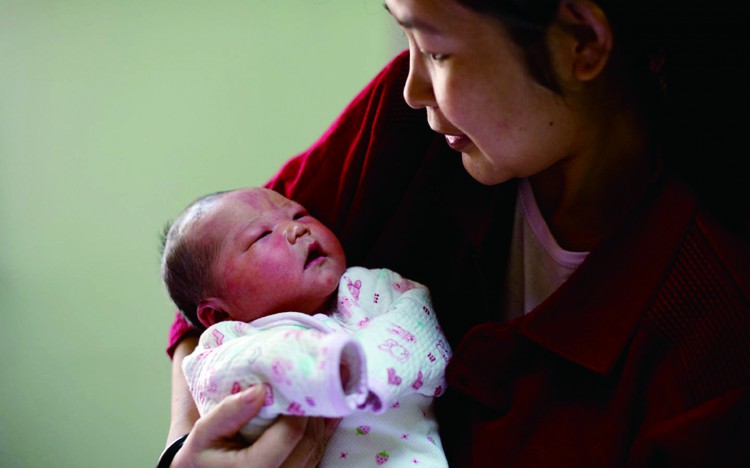In China, there is a famous song that almost all kids can recite called ‘Shishang Zhiyou Mama Hao’ (世上只有妈妈好, commonly translated in English as ‘Mom is the Best’). The fact that nearly every child is taught this ditty reflects the national view that mothers should be honored as selfless and devoted figures – a belief that has been held throughout Chinese history.
However, not every mom in the Middle Kingdom is praised so highly. In today’s China, the public marginalizes a growing group: female single parents.
In the last decade, their ranks have swelled at a phenomenal pace. According to Redinblack.net, a Chinese website that aims to raise public awareness about single moms, there are currently over 20 million women in China raising children alone. This figure is expected to rise by three million annually in the coming years.
There are three kinds of single moms in China: unmarried women, divorced women and widowed women. No matter which category a female falls into, they face more or less the same difficulties.
One of the most serious problems faced by all single moms is the high cost of living, and of all regular expenses, the cost of their children’s schooling makes up the largest chunk. In 2013, figures from the Guangzhou Women’s Federation revealed that there were 6,190 single moms in Guangzhou registered as living in poverty, of whom 68 percent were reported to be additionally burdened due to the high cost of tuition fees, which is normally RMB1,500 per month.
Little or no support from ex-husbands, the inability to work due to being a stay-at-home mother and a lack of sufficient education have made it even harder for single moms to make ends meet.
Lin Cuijuan divorced her husband in 2006 and took custody of their son, who was diagnosed with autism at the age of 6. In order to shoulder her monthly rent of RMB900 and the RMB1,600 for the specialist school her son attends, Lin has to work three jobs, toiling away from 4am to 10pm every day. “I feel really tired, since my son fully relies on me. But seeing him receiving a proper education, I feel happy and satisfied,” says Lin.
Another prominent issue affecting single moms involves the difficult of embarking on fresh relationships and finding a new spouse. A traditional Chinese saying goes: “A good woman never marries a second husband (好女不嫁二夫),” and the stigma attached to remarrying is still very prevalent.
In the PRC, many people brand divorced women as second-hand goods whose value has been lost; unmarried women with kids as corrupted; and widowed women as bad luck. A recent five-year survey following 100 divorced couples in Beijing revealed over a half of the interviewed males had re-married while just 15 percent of the females had found a husband.
Aside from financial and societal pressures, single moms also worry about what their children will think if they remarry. An online survey conducted by Sina.com showed that about 60 percent of the women asked would only accept a proposal from a man if their kids were okay with it.
“My daughter is important to me,” says Ms. Fang, a 45-year-old single mom and a head nurse working in Guangzhou. “If she says no, I will definitely not marry again.”
With China’s increasing divorce rate and growing numbers of monetarily unstable single mothers, more attention has been focused on this previously overlooked group. In Guangzhou, for instance, the Guangzhou Women’s Federation set up the Single Moms Rose Project in 2012 to empower women to learn new skills and achieve economic independence, as well as helping them to find their Mr. Right at matchmaking events. A sub-branch of this organization, the Liwan Women’s Federation, arranges job-training classes for poor single mothers living in Liwan district.













